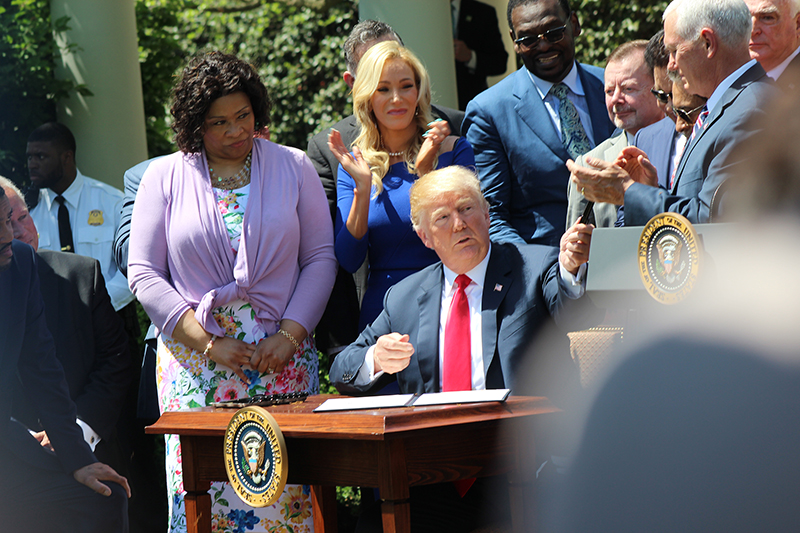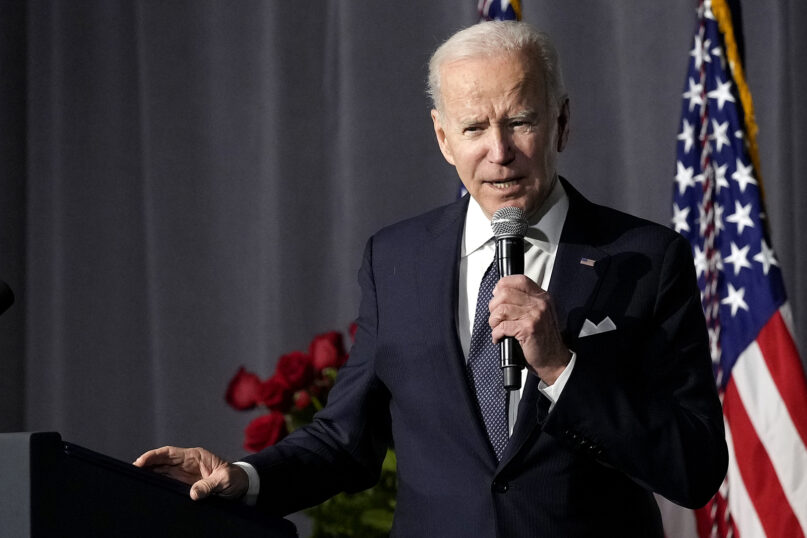(RNS) — A long time ago, in a GOP far, far away, President George W. Bush established a White House Office of Faith-Based and Community Initiatives. In the service of “compassionate conservatism,” a trademark phrase he had campaigned on, Bush set out to encourage religious organizations to provide social services for those in need, promising that when they applied for federal funds to do so, their religious identity would not stand in the way.
This promise was made in the face of objections from those on the left who said that the faith-based initiative represented unconstitutional government support for religion. Those on the right, meanwhile, objected that it would subject churches to dangerous government regulation.
But the initiative’s real shortcoming was that the administration declined to ask Congress for additional funding for social services, thereby succeeding mainly in inviting competition for scarce resources from groups that lacked experience in government programming. Of some use was a provision enabling federal agencies to appoint offices of their own to reach out to relevant religious organizations.
When Barack Obama assumed the presidency in 2009, the sometime community organizer continued this initiative under the slogan of “all hands on deck.” Changing the name of the White House office to “Faith-Based and Neighborhood Partnerships,” he created an advisory board of considerable diversity that, importantly, spearheaded the promulgation of regulations to ensure that federally funded faith-based providers did not subject beneficiaries to unwanted religious obligations.
Under these regulations, discrimination on religious grounds was explicitly forbidden, religious activities were mandated to be kept separate from federally funded programming, and faith-based providers were required to make alternatives known to any beneficiary who objected to their religious character.

President Donald Trump passes out pens after signing the White House Faith and Opportunity Initiative executive order during a National Day of Prayer event in the Rose Garden of the White House on May 3, 2018, in Washington. RNS photo by Adelle M. Banks
Enter President Donald Trump. In May of 2018, he signed an executive order reestablishing the White House office under yet a new name: the Faith and Opportunity Initiative. Yet in contrast to the two previous administrations, no one was hired to head it, and there is no evidence that it ever did everything.
Clearly, the order had no purpose other than to announce a rule-making process that did away with the protections for beneficiaries put in place by Obama. That process was accomplished in 2020, whereupon a group of liberal organizations led by Americans United filed suit on the last day of the Trump administration to have the protections restored.
The protections should not be dismissed as lawyers’ hypotheticals that do not relate to the lives of real-life beneficiaries.
“For me this issue is personal as well as professional,” said Jennifer Pizer, chief legal officer of Lambda Legal, one of the organizations that filed suit. “I lost a friend to suicide who wouldn’t accept services because his gender as a transgender man was not accepted. Services must be provided in a way that meets professional standards. When that’s not true, the result can be fatal.”
Within a month of taking office, President Joe Biden proceeded to reestablish Obama’s Office of Faith-Based and Neighborhood Partnerships under its previous executive director, attorney Melissa Rogers. And last week, the array of federal agencies operating under the office’s umbrella belatedly announced a rule-making process to restore the Obama protections.
With some tweaks. For example, instead of requiring faith-based providers to help objecting beneficiaries find alternative providers, it will now be up to the agencies that administer or award federal financial assistance themselves to notify beneficiaries of alternatives (as well as the other protections).
In an America that is more religiously diverse than ever, I would like to believe that even the religious advisers who put Trump up to doing away with the Obama protections would acknowledge their value. I’m not now a believer.






